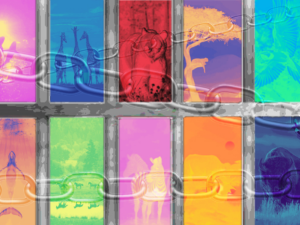Boko Haram stamps on bad rep for women
February 24, 2016
Hundreds of Nigerian women who were abducted by the terrorist group Boko Haram, are returning to society to face intense scrutiny.
A recent report, published by International Alert with UNICEF, states these women have been treated with mistrust and persecution upon their return home. Returnees are labeled “Boko Haram wives” or “epidemics” by their communities who fear the women have been radicalized by their captors.
“It’s horrifying that the girls who’ve been so profoundly victimized are not getting the support they need,” said Amy Agigian, director of Suffolk University’s Center for Women’s Health and Human Rights. “The most important thing they need is security. They need a place to stay where they’re not going to be assaulted, as well as food, clothing, and shelter. They need everything.”
The human rights group Amnesty International reports more than 2,000 women and young girls have been abducted by Boko Haram in Northern Africa since 2014.
“This is one more reason why we need to support feminist organizations across the globe,” said Agigian. “They are the ones fighting, not only militarism and conflict, but they are trying to create a more sustainable and secure life for everybody.”
The insurgent group, founded by Mohammed Yusef in 2003, is focused on the creation of an Islamic State. They feed off the poverty and unemployment in northern Nigeria and crusade for the end of western education by using terror tactics to further their agenda.
They finance themselves primarily through ransom kidnappings and other illegal activities. Abubakar Shekau, a self-proclaimed leader of the Islamist militant group, vocalized his intentions in a video posted to YouTube in 2014.
“There is a market for selling humans” Shekau said in the video, which was translated from the local Hasau language. “Allah says I should sell. He commands me to sell. I will sell women. I sell women.”
The largest kidnapping took place on April 14, 2015 when more than 270 girls were taken from their secondary school in the Chibok. It prompted the social media campaign #BringBackOurGirls, galvanizing international outrage. The hash tag was used on social media over one million times over a threeweek period. As of now, the majority of the girls still remain missing, according to multiple sources.
The insurgency has set their sights on schoolgirls, stating that female education is considered the beginning of “corrupt modernity.” While captive, women and girls will often be sexually abused, sold into slavery, or married off. Some of the girls have been radicalized by the group and are encouraged to recruit or carry out suicide bombings. The Nigerian military has declared recent raids on multiple Boko Haram camps, freeing hundreds of women and girls. While the military has moved in on the camps, militants pelted their hostages to death with stones to avoid their rescue before being overrun by troops, according to multiple sources. The Nigerian government has reported the release of over 700 girls were released in 2015.
Once liberated, the women and girls are sent to refugee camps, but have not received a warm welcome. The reintegration of these women has proven to be very difficult because their communities fear they have been radicalized and will try to recruit others. Extensive rehabilitation will be essential before returning to the camps, accordubg to USA Today.
“Many of these girls already face lasting trauma of sexual violence and being separated from their families,” said Kimairis Toogood, a peace-building advisor for International Alert in Nigeria told the Guardian. “We must ensure they get all the support the need when they finally return.”
New findings state that many of the women and girls are being ostracized by their communities, as well as their families. They face extreme poverty and some are forced to prostitute themselves to feed their children.







